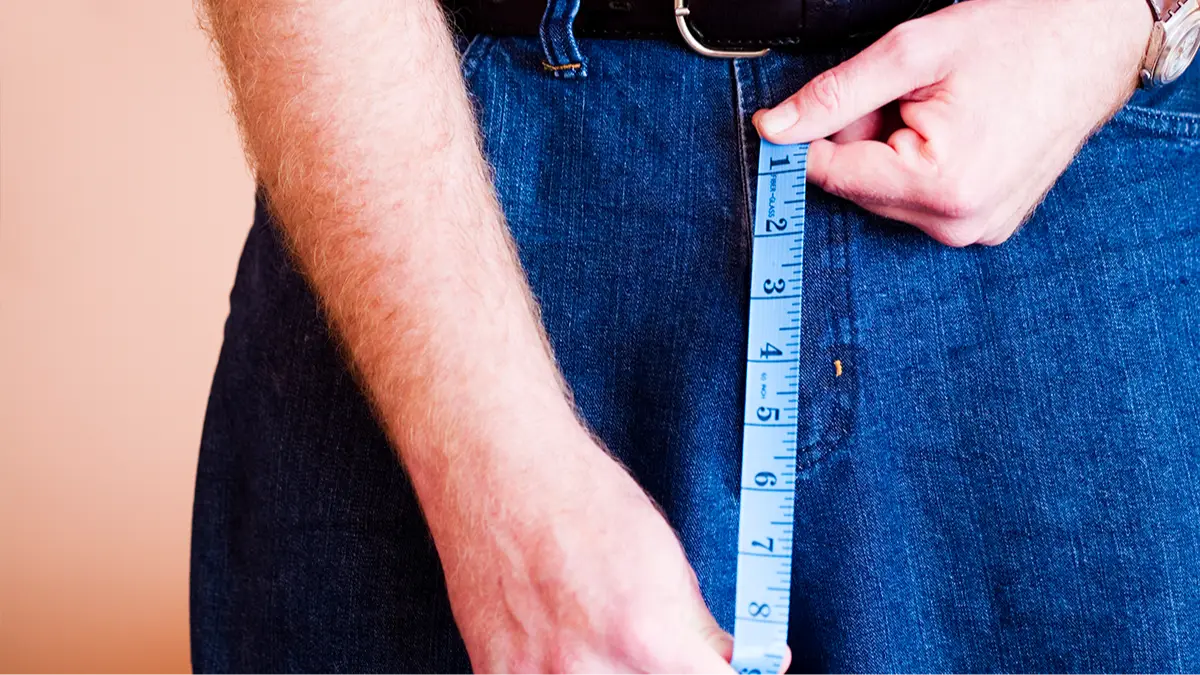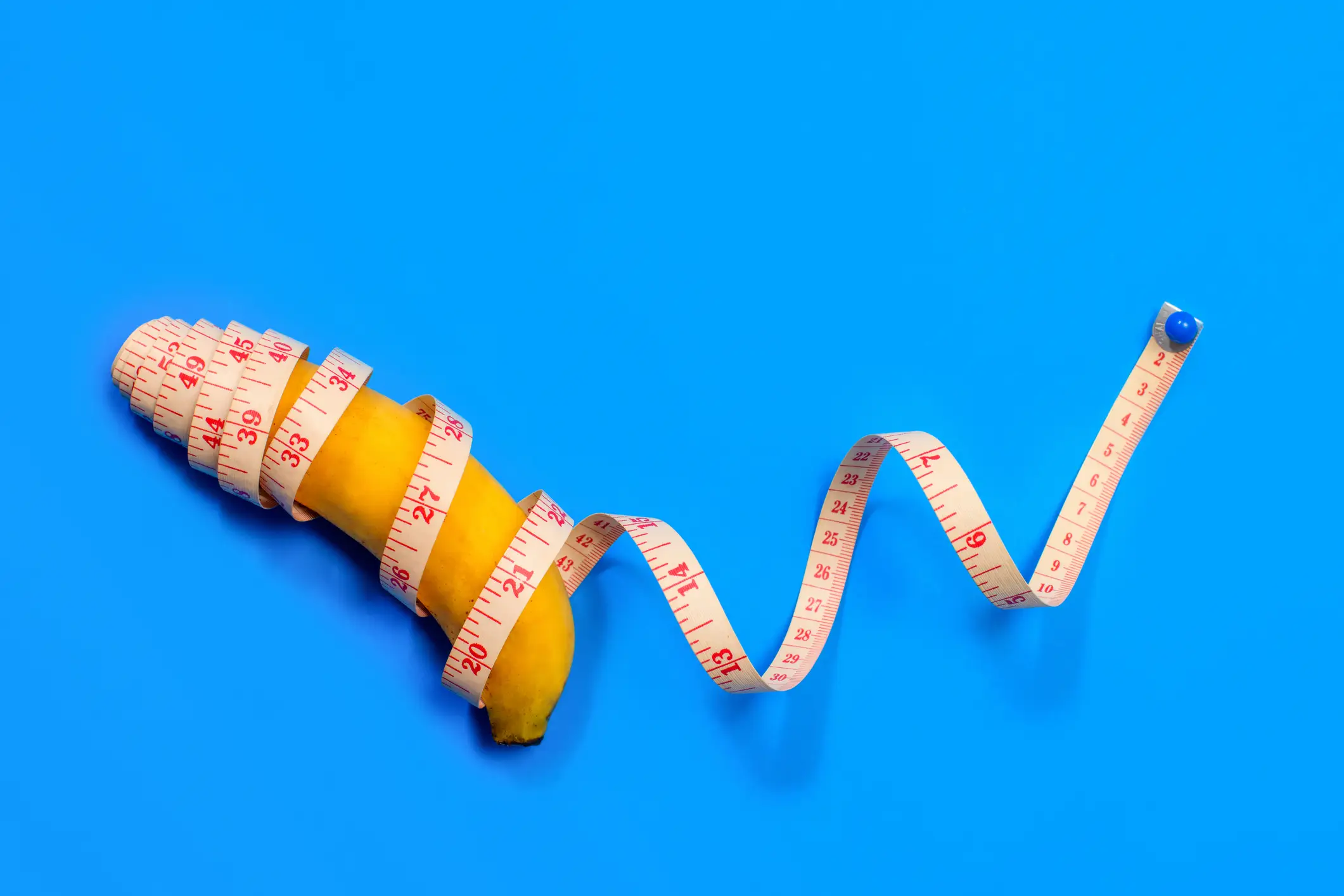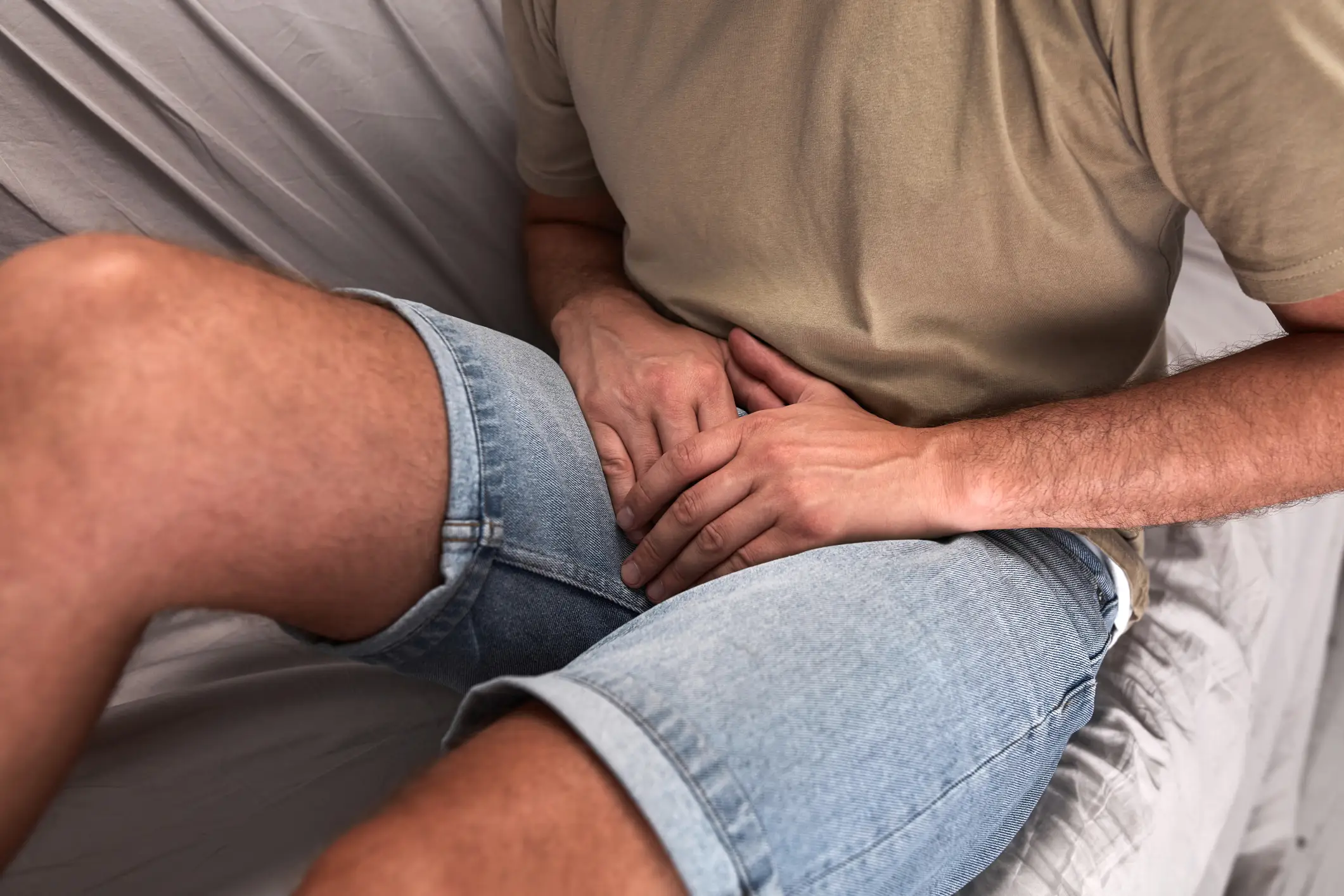
While many men would hope that their penis would grow indefinitely, there comes a time when it stops.
Some men may feel a type of way about the size of their penis, but I think we can all agree that it really comes down to the motion in the ocean rather than the number on the measuring tape.
Despite this, a lot of people will wonder if there are factors that influence the size of someone's appendage, something Dr Amy Pearlman (a urologist specialising in male sexual and hormonal health) has called 'the million dollar question'.
As per Men's Health, DNA and hormone exposure during development are said to be the two main drivers of how big your pecker might be - or so current research suggests.
Advert

And we've all heard the age-old joke of 'you know what they say about big feet...', but researchers have struggled to find a correlation between things like foot size, finger size, height and penis length.
Elsewhere, urologist and sexual wellness expert Dr Jamin Brahmbhatt has answered what some others might say is actually the million dollar question - when does your penis stop growing?
"Most penile growth happens during puberty when testosterone goes up," said Dr Brahmbhatt, adding: "By about 18 - the end of high school for most boys - length and girth are essentially set."
While your penis size can stop growing in your teens, it can later shrink.
"Your penis can shrink both in length and girth as you get older," Dr Pearlman shared with Men's Health.
But such shrinkage isn't because of ageing, though it can be linked to erectile dysfunction (ED), which is most prevalent as men get older. According to the outlet, 80 percent of men in their 80s will experience ED.

As well as age, there's a common issue that can cause ED and that's vitamin D deficiency.
A study released earlier this year found that those diagnosed with the vitamin deficiency also suffered function in their corpora cavernosa (the spongy tissue in the penis that is vital for maintaining erections).
Dr Miguel Olivencia, a researcher at Complutense University and co-author of the study, said: "Our results suggest that vitamin D deficiency may contribute to the lack of response to this first-line treatment of erectile dysfunction.
"The findings raise the possibility that restoring vitamin D in patients with vitamin D deficiency and erectile dysfunction would improve sexual performance."
The best way to increase your vitamin D intake is by spending more time in the sun, consuming vitamin-rich foods like tuna and egg yolks, and taking supplements.
Topics: Sex and Relationships, Health